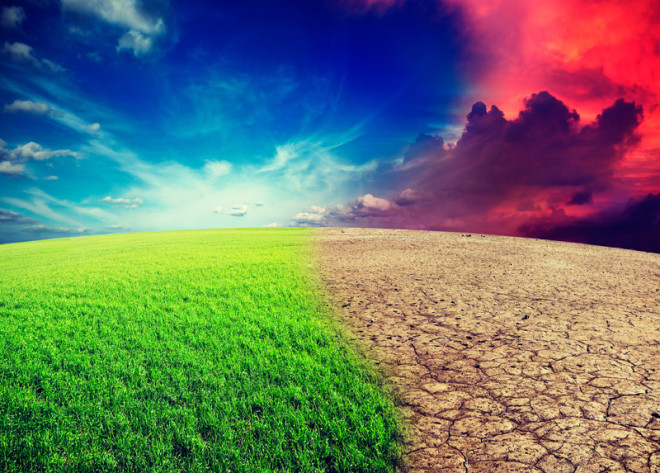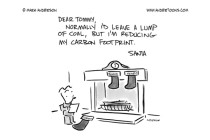In our article Big Change Starts Small, we asked you to imagine the effects of a global effort to replace one incandescent bulb with an LED. Now, imagine a global endeavour to reduce greenhouse gas (GHG) emitters where constituents hold governments accountable to their environmental commitments. A Dutch Court recently made history in the ongoing debate on climate change with a landmark case in which the Government was ordered to reduce greenhouse emissions by a minimum of 25% by 2020 when compared to 1990. Environmental rights group Urgenda brought the case on behalf of almost 900 Dutch citizens, arguing that it was the government’s legal obligation to protect its people against the dangers of climate change.
Greenhouse gases assist in warming the planet’s surface (known as the greenhouse effect), but since the start of the Industrial Revolution in 1750, we have produced a 40% increase in the atmospheric concentration of carbon dioxide, intensifying the natural greenhouse effect, and creating global warming. Scientists estimate that if this continues, the latter half of this century could see an inordinate increase in extreme weather, melting ice caps, and food and water shortages. As a low-lying country, approximately one quarter of the Netherland’s territory is at or below sea level making it more susceptible to flooding, which would worsen as sea levels rise. The court ruled that current policy indicates the Netherlands would only see a maximum greenhouse gas reduction of 17% by 2020, a number far lower than other nations. Currently, the 28 members of the European Union have said they will reduce emissions by 40% compared to levels in 1999 by 2030, and the United States is aiming to reduce emissions by 26-28% by 2025 and negotiators at the 2015 United Nations Climate Change Conference, to be held at the end of this year, are hoping to reach a global deal to reduce greenhouse gas emissions to cap the global temperature increase at 2 ºC.
With everyone from Al Gore to NASA scientists weighing in on not only the effects of global warming, but also whether it actually exists, there is no doubt this case is a game changer on the political front. As Marjan Minnesma, Urgenda’s director, points out on their website, “… states can no longer afford inaction. States are meant to protect their citizens, and if politicians will not do this of their own accord, then the courts are there to help.” As the first case in Europe where citizens put their government to task over the potential effects of their inaction, and the first in the world to use human rights as a legal basis with regards to climate change, many environmentalists hope the win will set precedent in the international community. Similar cases are already being brought in Belgium and the Philippines, and preparations for a case have begun in Norway.
While coal and gas currently supply the Netherlands with the majority of their energy, as opposed to renewable sources such as wind power being used by other countries like Denmark and Germany, the Dutch government has agreed to close coal plants and increase their use of solar energy and windmills to dramatically reduce gas extractions. What remains unclear, however, is how the courts plan on enforce the ruling, and whether or not the government will appeal to a higher court.
There is no doubt the impact government accountability would have on reducing greenhouse gas emissions, and at Mission, we look forward to seeing the effects this ruling has internationally, but in the meantime, it’s important to remember our own accountability and continually look for ways to contribute to Canada’s greenhouse gas emissions reduction targets, which, according to Environment Canada, aren’t likely to be achieved by 2020.
About The Author

-
Serial Entrepreneur, Technologist and Inventor.
My objective is to develop useful products that have a net positive effect in the lives of those that use them and the environment that we live in.
CEO of Mission LED Lighting Company Ltd.
- 2017.05.24LED factsWhy Are Cars Switching to LEDs if They’re Too Bright?
- 2017.05.09Be green & saveHow to Easily Replace T8 Fluorescent Tubes With LED
- 2017.03.07Build a better future7 Things About Explosion Proof LED Lighting You Should Know
- 2017.02.28Be green & saveWhy We Love LED Grow Lights (And You Should, Too!)





Emily
Isn’t global warimng basically a change in the greenhouse effect? If not, what’s the relationship between the two phenomena? There is almost no relationship. Global warimng is a fantasy theory where Believers say that the earth’s temperature is rising due to changes in the concentration of CO2. The feeble evidence they cling to is a weak correlation between co2 and temperature. The trouble is that global temperature measurements are from satellites and only extend back to about 1975, and global co2 measurements are non existent since they are only recorded at one location in Hawaii and only extend back to the 1950’s. Beyond those dates and locations measurements are sporadic and unreliable, certainly not global and not of long enough duration. The Believers of this theory are now a shrinking minority who still claim co2 is the devil. Climate change is a reality however, and most of the world has seen lots of evidence of this in the form of images of polar bears and melting glaciers. But people realize that these images are evidence that the earths climate changes only, these images are not evidence that co2 is the cause. Only the Believers still fall for this ploy. Lol!Hope this answers your question.Cheer up folks, the climate scare has passed.
ReplyJohn Keirstead
Thanks for your input Emily! This is a big topic, with many viewpoint and beliefs, all of which are difficult to undeniably prove one way or another. At Mission, we respect your viewpoint and we hope you can at least, share our belief that a reduction in waste of anything is a good thing: Whether it is oil-based energy or trying other sources of energy, we support efficiency, minimal pollution, and minimal environmental impact. We are also realistic, change takes time and big changes start small, we do not see these issues as black and white, wrong or right; instead we promote progress over perfection, because, well, perfection is an ideal and could only be possible if we knew everything for fact, and had the political and personal will to achieve it.
With so many folks at different sides of the fence, proclaiming their facts as the true facts, who knows who is actually fully correct or not…so we take a step-back and ask, “What can we do today, that will make the world a better place?” By asking this on an ongoing basis, we believe that we will leave this place better than we found it. And indeed one of those things is to challenge our own notions, thank you again for your time and input – always appreciated!
Reply